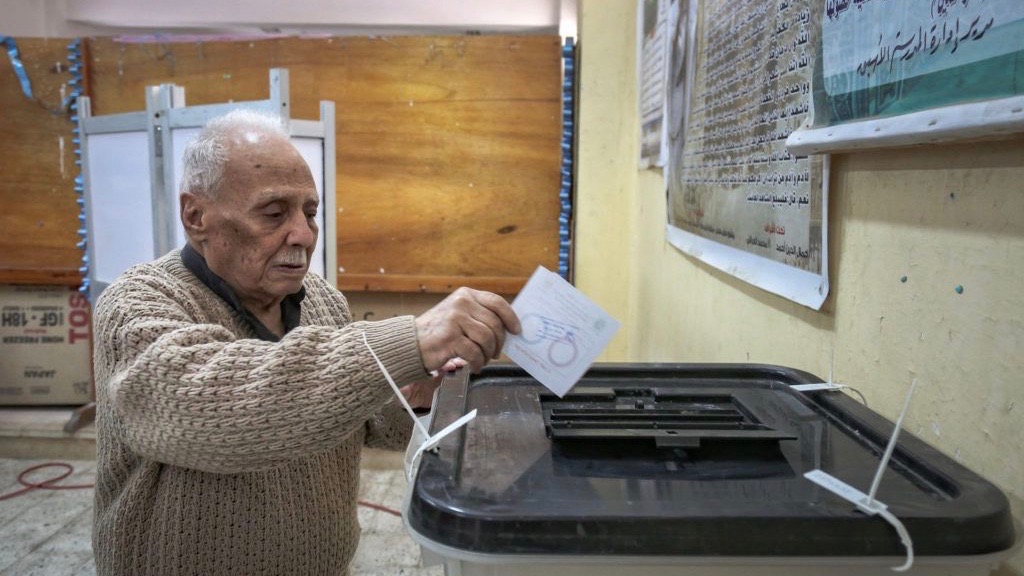Egyptian elections authorities announced on Monday, September 25, that the country will hold presidential elections from December 10 to 12 this year. However, doubts have already been cast about the legitimacy of the elections. President Abdel Fattah el-Sisi came to power in Egypt in a military coup in 2013 that overthrew the democratically elected government of Mohammed Morsi. He subsequently won presidential elections in 2014 and 2018 with close to 100% of the total votes polled in what were described by many as sham processes.
The national election authority has said that the list of candidates for the upcoming elections will be finalized by November 9 and the campaign will last from November 9 to 29. Egyptians living overseas will vote from December 1 to 3 and the winner will most likely be announced by December 18. If no clear winner emerges in the first round and a run-off round is held, the winner will be announced by January 16.
Four candidates from different political parties have already declared their intention to run, including former member of the Egyptian parliament and leader of the Karama party, Ahmed Tantawi, the Dostour party’s Gameela Ismail, and Social Democratic Party leader Farid Zahran. El-Sisi hasn’t yet formally announced his bid for a third term but is widely expected to run, especially as his government amended the constitution in 2019 to allow him to run for two additional terms, besides extending the duration of the presidential term from four to six years.
Since taking power, the el-Sisi regime has presided over a systematic crackdown on opposition parties and leaders, human rights activists, journalists, pro-democracy activists, and others who are critical of the government’s policies. Tens of thousands of people have been thrown into prison. Many of those detainees have died in custody due to abuse, torture, and medical neglect. Local and international human rights groups have repeatedly appealed to the Egyptian government to respect human rights and civil liberties but they have largely been ignored. Even Egypt’s allies, such as the United States, have urged the government to improve the human rights situation and to allow space for criticism and dissent.
Meanwhile, the Egyptian economy has experienced a gradual decline over the last several years, with millions suffering due to lack of employment, loss of income, high levels of inflation, inadequate public services, and several other issues. Reports noted that the Egyptian currency has lost more than half of its value against the US dollar since March last year. The inflation rate reached an all-time high of 39.7% in August.
It has been reported that one of the prominent opposition candidates for the upcoming election, Ahmed Tantawi, was the victim of a spyware attack by software of Israeli origin. The revelations were made jointly by Canadian internet watchdog Citizen Lab and Google’s Threat Analysis Group after an investigation concluded that his phone was compromised as a result of the spying attack. Their report said, “our forensic analysis showed numerous attempts to target Eltantawy with Cytrox’s Predator spyware.” It added that the spying and surveillance attempts were most probably made at the behest of the Egyptian government using a software made by Cytrox, an Israeli-Hungarian cyber arms dealer. The Egyptian government is said to be a known customer of the software.
Tantawi denounced the spying attacks against him, saying that they were attempts “not only to surveil but perhaps also to find compromising material that could be used to discredit or defame me.” He added that he had contacted the Citizen Lab after receiving suspicious messages on his phone which he suspected were “inextricably linked to my political candidacy and my opposition role in the country against the Sisi regime.” The report concluded that the spying attempts against Tantawi failed in the end because the leader had put his phone on “lockdown mode,” a mode that Apple recommends for its iPhone users who are under threat of such attacks. Tantawi was also the victim of an attack by the same software in 2021, as per the Citizen Lab.





